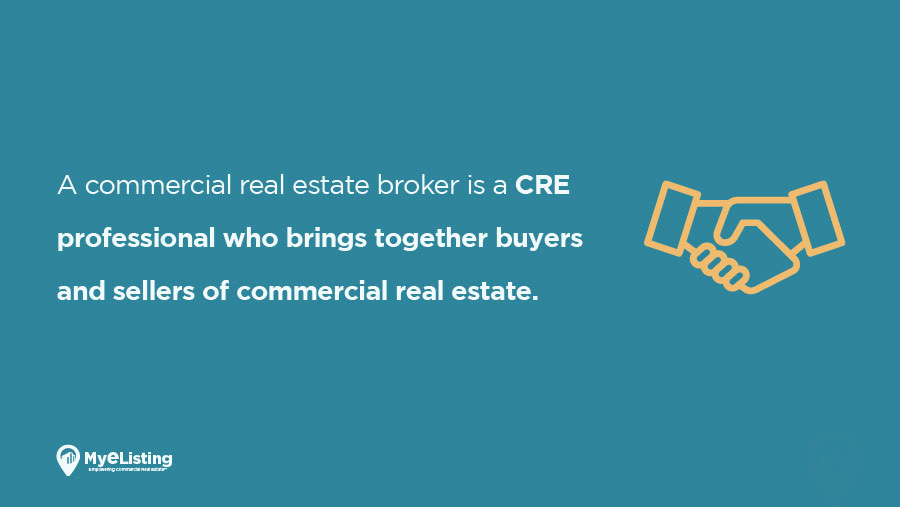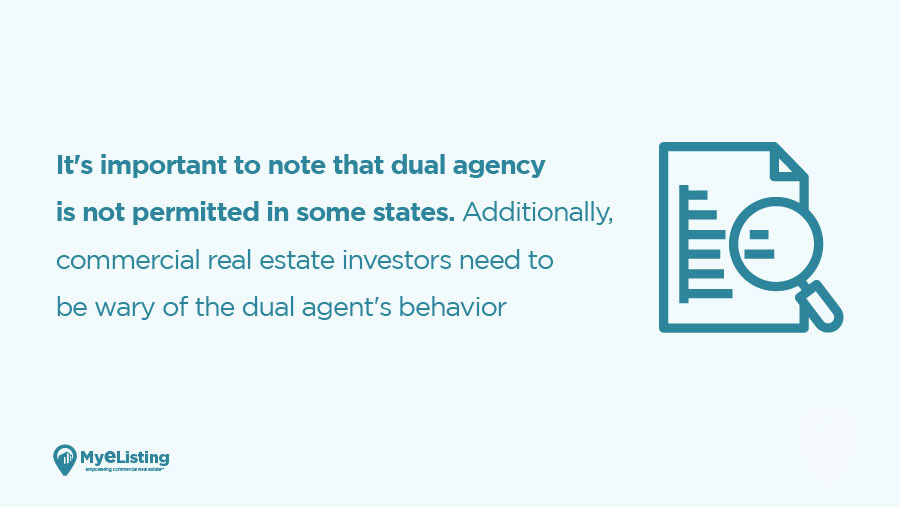How to Work With Dual Agent Brokers as a CRE Investor

Specializes in providing actionable insights into the commercial real estate space for investors, brokers, lessors, and lessees. He covers quarterly market data reports, investment strategies, how-to guides, and top-down perspectives on market movements.

In a recent deal gone wrong, commercial real estate brokerage firm JLL lost nearly $800,000 in commissions after brokering an office space transaction in Washington, D.C., and failing to properly disclose that it represented both sides of the sale in dual agency.
Commercial real estate (CRE) brokers are essential components of commercial real estate investing, but knowing when and when not to work with one is equally as important.
Here’s a nightmare CRE scenario: trapping yourself in a bad purchase or lease only to find out that your broker never truly had your best interests in mind to begin with, launching a drawn-out sequence of expensive litigation.
Sound fun? Didn’t think so. Let’s look at how you can work with dual agent brokers in the commercial real estate industry.
What Is a Commercial Real Estate Broker?

A commercial real estate broker is a CRE professional who brings together buyers and sellers of commercial real estate. They are experts in the industry, required to possess more hours of training and experience than other real estate professionals.
Each broker has a specialty as well as a certain geographic focus: Some brokers focus on investment properties, while others may focus on leasing or buying retail spaces in a specific city.
There are three primary types of commercial real estate brokers: Those who represent tenants, called tenant reps; those who represent landlords, called listing agents or landlord reps; and dual agents, those who represent both sides of the transaction at once.
While it may sound sketchy, working with dual agents is not a conflict of interest as long as regulations and local laws are followed, precisely what JLL failed to do.
The Art of Working With Dual Agent Brokers
Working with dual agent brokers can be tricky for commercial real estate investors. These agents represent two sides of the same transaction, and it’s important to realize that you are not the only one they are working for.
But the most salient piece of advice you should take with you when working with a dual agent broker is that you are essentially on your own. Unlike a tenant rep or listing agent, the dual agent cannot give you investment or leasing advice since they are directly involved in a conflict-of-interest situation.
Working with a dual agent broker, however, may greatly expedite the time it takes to find the right deal. You can potentially save money when working with a dual agent, as well.
Pros of Working with Dual Agents
Dual agent brokers aren’t all sketch-and-bones. They do come with advantages of their own:
- Communication is fast and easy. Because a single broker is working with both parties involved in the transaction, wants, wishes, and concerns are easily and quickly communicated.
- Full disclosure, without exception, is legally required. Laws and regulations dictate that a dual agent broker must always disclose their dual agency without exception. You should immediately know that you’re working with one.
- Potential for savings. It’s common for dual agents to charge lower commission fees to each individual party as they’ll be receiving commissions from, well, two different parties.
- Access to properties may be greater. Dual agency can also refer to the same brokerage company orchestrating both sides of the same transaction yet with two separate agents. As a result, buyers and sellers may have direct access to hundreds willing to make a deal.
Sound pretty good so far? Don’t start Google searching just yet, because dual agents certainly aren’t perfect, either.
Cons of Working With Dual Agents
Dual agents, while a very viable option, come with their own sets of problems:
- Commissions. One of the biggest disadvantages of working with dual-agent brokers is that the commission structure is less transparent than that of single-agent brokers. For example, if you’re working with two agents who each charge 10%, it might not be clear what percentage goes to which agent or how much you’ll be charged in total. This can make it difficult for investors to know exactly how much they are paying on top of rent and other costs and even more difficult for investors to budget their expenses accordingly.
- Conflicts of Interest. Agents may have conflicts of interest because they represent both buyer and seller, which can lead them to subconsciously or consciously favor one side over the other when negotiating terms or making deals.
- Lack of checks and balances. Because a single organization represents both sides of the same transaction, much can get in the way of true quality assurance.
- Confusing and easy to mess up. If you’re not used to working with dual agents, your first time may be confusing and easy to mess up. Working with dual agents requires a delicate balance between protecting yourself and making sure the broker knows exactly what you’re looking for.
If you’re working with a dual agent, it’s never a bad idea to bring along a CRE attorney, as well.
So, where did JLL go wrong? Now that we know all that dual agency can and cannot offer, how can we learn from JLL’s mistakes?
Legal Concerns When Working With Dual Agents

It’s important to note that dual agency is not permitted in some states. Additionally, commercial real estate investors need to be wary of the dual agent’s behavior, ensuring they follow laws and regulations surrounding their dual agency.
JLL claimed that it had indeed disclosed its dual agency to both parties involved. While this is technically true, as the lease agreement brokered by the firm mentioned its dual agency, it failed to follow proper local protocol when doing so.
Local protocol required that specific emphasis be placed on this mention of dual agency. JLL not only failed to indicate such emphasis, but it also failed to use the proper language required for the mention to be enforceable.
This is just one example of a dual agent trying to technically follow the rules and regulations surrounding their dual agency while trying to get away with a conflict of interest through loopholes.
As An Investor, Should I Try To Avoid Using A Dual Agent Entirely?

The short answer is, if you’re new to CRE investing, then absolutely; if you’re not and would like streamlined communication alongside faster closings, then looking into dual agency may be worth it.
Those new to the world of CRE should side with a specialist broker who can guide you every step of the way. Because of the conflict of interest involved, dual agents can’t truly do that.
Do your research, stay diligent, and as always, happy investing.
List & Browse Commercial Real Estate for Free on MyEListing.com!
You can list and browse commercial real estate for free simply by signing up for a free account right here on MyEListing.com.
You’ll get unlimited access to accurate local market intelligence, demographics reports, unlimited listings, and more.
Article Search
Share
All Article Categories








